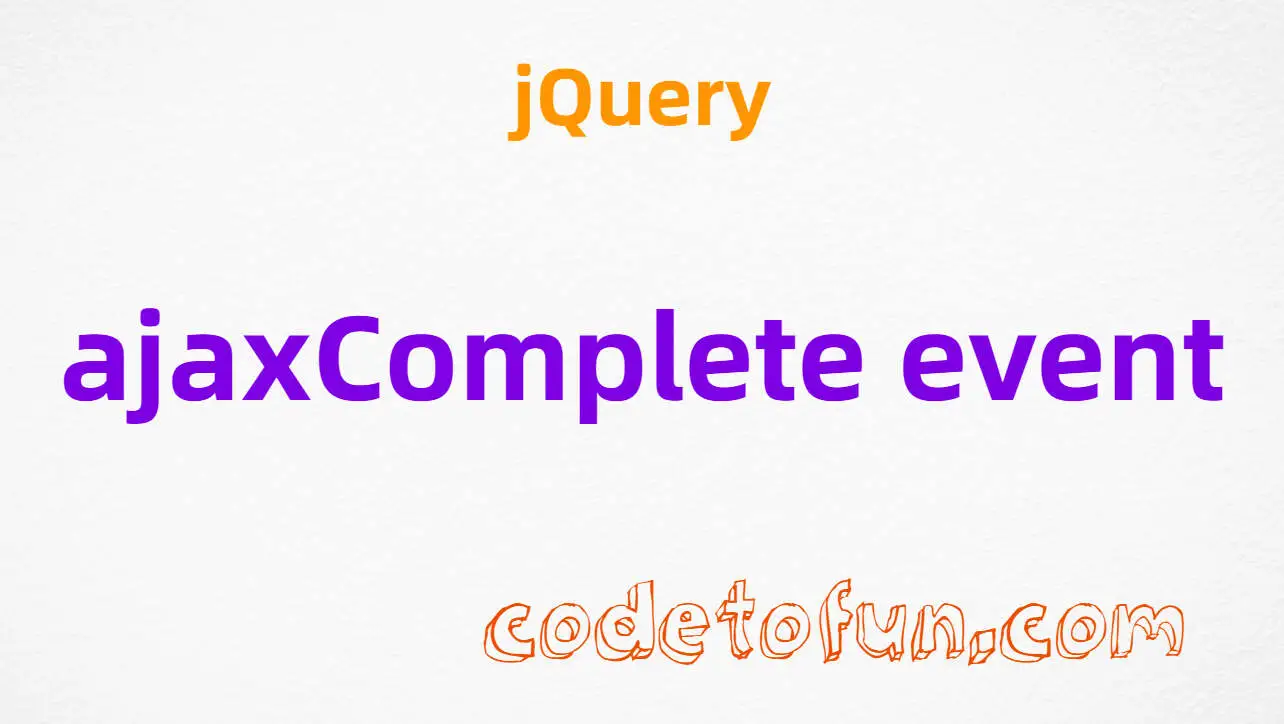
jQuery Topics
- jQuery Introduction
- jQuery Callbacks
- jQuery deferred
- jQuery selectors
- jQuery Ajax Events
- jQuery Ajax Methods
- jQuery Keyboard Events
- jQuery Keyboard Methods
- jQuery Form Events
- jQuery Form Methods
- jQuery Mouse Events
- jQuery Mouse Methods
- jQuery Event Properties
- jQuery Event Methods
- jQuery HTML
- jQuery CSS
- jQuery Fading
- jQuery Traversing
- jQuery Utilities
- jQuery Properties
jQuery jQuery.getScript() Method

Photo Credit to CodeToFun
🙋 Introduction
jQuery is renowned for its simplicity and effectiveness in web development, offering a plethora of methods to streamline the creation of dynamic and interactive web pages. One such method is .getScript(), which provides a convenient way to load and execute JavaScript files dynamically.
In this guide, we'll explore the jQuery .getScript() method, its syntax, and various applications through illustrative examples.
🧠 Understanding jQuery.getScript() Method
The .getScript() method in jQuery is used to dynamically load and execute JavaScript files. This method simplifies the process of including external scripts in your web page on-the-fly, enabling you to enhance functionality without the need for manual script tags in the HTML.
💡 Syntax
The syntax for the jQuery.getScript() method is straightforward:
$.getScript(url [, success]);Parameters:
- url: The URL of the JavaScript file to be loaded.
- success (Optional): A callback function to be executed once the script is successfully loaded.
📝 Example
Loading and Executing a Script:
Suppose you have an external JavaScript file named script.js containing a function called loadMessage(). You can load and execute this script using
.getScript()as follows:example.jsCopied$.getScript("script.js", function() { loadMessage(); });This will load script.js and execute the loadMessage() function defined within it.
Handling Success and Error Cases:
You can provide optional success and error callbacks to handle different scenarios:
example.jsCopied$.getScript("script.js") .done(function() { console.log("Script loaded successfully!"); }) .fail(function(jqxhr, settings, exception) { console.error("Script load failed!"); });This will log messages to the console based on whether the script loading succeeds or fails.
Dynamic Loading Based on Conditions:
You can dynamically load scripts based on certain conditions in your code. For instance:
example.jsCopiedif (condition) { $.getScript("script1.js"); } else { $.getScript("script2.js"); }This will load either script1.js or script2.js based on the condition evaluated.
🎉 Conclusion
The jQuery .getScript() method offers a convenient way to dynamically load and execute JavaScript files, providing flexibility and efficiency in web development. Whether you need to enhance functionality, handle dependencies, or load scripts conditionally, this method simplifies the process, contributing to a more organized and streamlined codebase.
By mastering its usage, you can leverage the power of dynamic scripting to create richer and more interactive web experiences effortlessly.
👨💻 Join our Community:
Author

For over eight years, I worked as a full-stack web developer. Now, I have chosen my profession as a full-time blogger at codetofun.com.
Buy me a coffee to make codetofun.com free for everyone.
Buy me a Coffee












If you have any doubts regarding this article (jQuery jQuery.getScript() Method), please comment here. I will help you immediately.